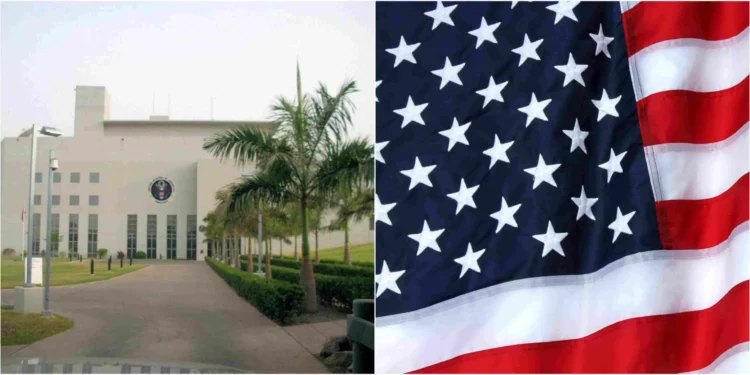The United States Embassy in Nigeria has allegedly begun quietly revoking valid visas issued to Nigerian citizens, leaving numerous professionals and travelers in uncertainty, according to revelations by former NNPC spokesperson Olufemi Soneye.
In an article titled “The Quiet Revocation: Why is the U.S. Silently Cancelling Nigerians’ Visas?”, Soneye disclosed that multiple Nigerian citizens have received official letters from the embassy in recent weeks, directing them to surrender their passports at consulates in Lagos or Abuja for visa cancellation.
The cancellation notices reportedly invoke Title 22, Code of Federal Regulations, Section 41.122, with the embassy citing only that “new information became available after the visa was issued.” However, the letters provide no specific details, evidence, or appeal mechanisms for affected visa holders.
Among those impacted are high-profile individuals including a prominent journalist, a federal agency head scheduled for an international speaking engagement, and an Abuja-based entrepreneur with an unblemished travel history. The wave of cancellations has also affected professionals who depend on valid visas for educational purposes, family visits, medical treatment, and business activities.
The situation has created severe practical complications for affected travelers. Some discovered their visa cancellations only upon arriving at airports or boarding gates, with several facing brief detention by immigration officials before being denied travel. Many have been forced to cancel trips, seek ticket refunds, and provide explanations to international partners about their inability to attend scheduled meetings.
The affected individuals maintain they have clean immigration records, having never overstayed visas, violated immigration regulations, or raised security concerns. This has fueled speculation about a possible shift in US visa policy targeting Nigerian citizens.
Despite the significant impact on Nigerian travelers and professionals, neither the US Embassy nor Nigerian government authorities have issued public statements addressing the cancellation wave, leaving those affected without official explanation or recourse.
The development raises questions about transparency in visa administration and could strain diplomatic relations between the two countries if the pattern continues without proper communication or justification from US authorities.
The silent nature of these revocations has particularly concerned the Nigerian professional community, many of whom maintain regular business and academic ties with American institutions and partners.



















